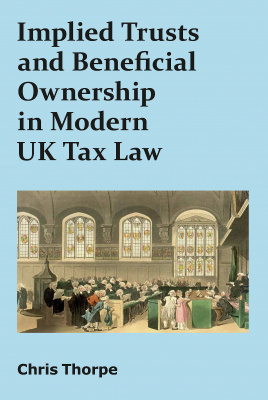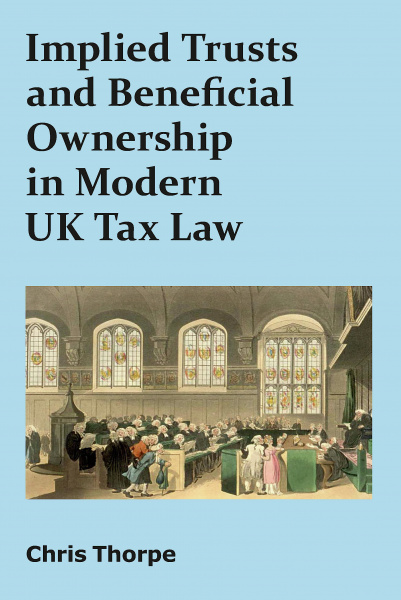Implied Trusts and Beneficial Ownership in Modern UK Tax Law
Implied Trusts and Beneficial Ownership in Modern UK Tax Law looks at that gap which lies between books on tax and those on trust law, and tries to bridge the two. How and why is beneficial ownership important in UK tax? This book is ideal for academics and practitioners alike. Those practitioners specialising in trusts should find this book an interesting and useful aid to supplement their knowledge of implied trusts and the relationship between the more-usual express trusts. Whether you are new to the tax profession, or a seasoned professional, there will be something here for everyone.
- AvailablePaperback9781913507381128 pagesList Price: GBP 40.00 Add to basket
- AvailablePDF9781913507398128 pagesList Price: GBP 20.00 Add to basket
Implied Trusts and Beneficial Ownership in Modern UK Tax Law takes a look at that gap which lies between books on tax and those on trust law, and tries to bridge the two. How and why is beneficial ownership important in UK tax? How does HM Revenue & Customs and the law recognise the imposition of beneficial ownership for tax purposes via an implied trust? and when will UK tax law impose beneficial ownership on a different taxpayer from the legal owner of an asset or income source? As well as tracing the story behind Britain's ancient tax laws and courts, relevant legislation, cases and HM Revenue & Customs' guidance are all reviewed to paint a picture of how equity and implied trusts fit within today's tax laws. With the introduction of the 4th and 5th Anti-Money Laundering Directives, it is more important than ever to identify where beneficial ownership lies.
This book is ideal for academics and practitioners alike, looking at the history of equity law and the chancery court through a prism of taxation; as well as the practical application of beneficial ownership when considering a client's tax position. Those practitioners specialising in trusts should find this book an interesting and useful aid to supplement their knowledge of implied trusts and the relationship between the more-usual express trusts. Whether you are new to the tax profession, or a seasoned professional, there will be something here for everyone.
About the author
List of abbreviations
Table of authorities
Introduction
1 What is beneficial ownership?
2 What is an implied trust?
2.1 Resulting trusts
2.2 Constructive trusts
3 What is modern tax law?
3.1 Tax Tribunals – The Judiciary
3.2 Legislation – Parliament
3.3 HMRC – The Executive
4 How does the law distinguish between implied trusts and express trusts?
4.1 Express trusts
4.2 Implied trusts
4.3 Partnerships
5 When did beneficial ownership become the focus of income tax legislation?
6 What is the settlements legislation? And how does it fit in with implied trusts and income tax law?
6.1 Why was it necessary to introduce the settlements legislation?
6.2 Settlor or their children retains an interest
6.3 Issues with a spouse
7 How did equity and beneficial ownership find their way into the courts in the first place? And how did this affect tax?
7.1 Court of Exchequer
7.2 Modern High Court
8 How are equity and beneficial ownership represented in today’s laws?
8.1 Income tax
8.2 What about capital taxes?
8.3 Examples of ‘pure equity’ besides trusts
9 Conclusion
Bibliography
Books
Articles
Index


